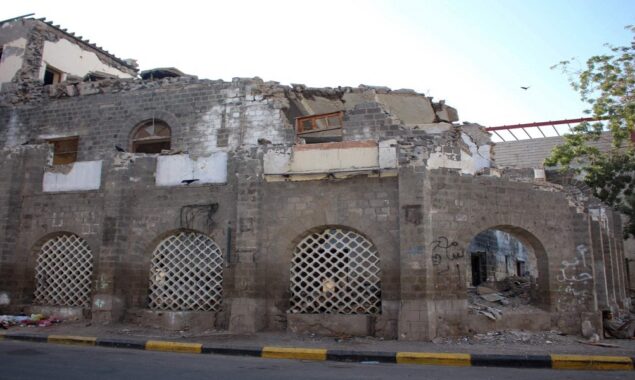
Timeline of a brutal war: Yemen’s seven-year conflict (Credits: Google)
- Saudi-backed forces and Huthi agree to extend a two-month cease-fire in Yemen.
- The conflict has killed some 380,000 people according to UN.
- President Hadi hands over his powers to a new leadership council.
On Thursday, Saudi-backed government forces and Iran-backed Huthi rebels in Yemen agreed to extend a two-month cease-fire that has provided some relief after seven years of conflict.
The conflict has killed some 380,000 people, directly or indirectly, according to UN data, in what was already one of the world’s poorest nations.
The Huthi rebels advance from their stronghold in Yemen’s northern mountains to seize the capital Sanaa in September 2014.
They ally themselves with forces loyal to ex-president Ali Abdullah Saleh, who was toppled in a 2011 uprising, before overrunning the lifeline Red Sea port of Hodeida.
Read more: Yemen’s warring parties renew two-month truce: UN
In February 2015, President Abedrabbo Mansour Hadi flees to second city Aden, on Yemen’s south coast.
A coalition led by Iran’s bitter enemy Saudi Arabia and the United Arab Emirates enters the conflict in March 2015 with air strikes targeting the rebels.
Washington says it is contributing logistics and intelligence.
As the rebels advance on Aden, Hadi flees to Saudi Arabia.
The coalition’s intervention helps pro-government forces secure the city.
In October, coalition forces take control of the Bab al-Mandab strait at the southern gates of the Red Sea, one of the world’s busiest and most strategic waterways.
In June 2018, government fighters backed by coalition ground forces launch an offensive to retake Hodeida, a key entry point for humanitarian aid.
In December, following negotiations in Sweden, the UN announces a ceasefire in Hodeida.
The anti-Huthi camp is divided between southern separatists and northern unionists loyal to Hadi’s government.
The separatists occupy the presidential palace in Aden in January 2018, before Saudi and Emirati forces intervene.
In August 2019, the Emirati-backed separatists again clash with the unionist troops.
Riyadh negotiates a power-sharing agreement and the formation of a new government.
The Huthis escalate their attacks on Saudi Arabia, using drones and missiles.
A major hit on September 14, 2019 on the giant Abqaiq oil processing plant and Khurais oil field halves the kingdom’s crude output.
Riyadh and Washington accuse Iran of being behind the attack, which it denies.
In February 2021, the US ends its support for the coalition’s military operations and removes the Huthis from a “terrorist” blacklist.
Shortly afterwards, the rebels resume an offensive to seize Yemen’s oil-rich Marib province, the government’s last northern stronghold.
In January 2022, the rebels take aim at the UAE, first seizing an Emirati-flagged vessel in the Red Sea and then carrying out a drone and missile attack on an oil facility in Abu Dhabi that kills three workers.
In February, Washington announces it is sending the destroyer USS Cole and fighter jets to Abu Dhabi to bolster its defences.
– More attacks on Saudi –
In March, the rebels carry out a new series of drone and missile attacks on Saudi oil facilities, one of which triggers a huge fire near Jeddah’s Formula One circuit while drivers are on the track.
A UN-brokered ceasefire starts on the first day of the Muslim holy month of Ramadan on April 2.
The Saudi-led coalition agrees to allow fuel shipments into Hodeida and commercial flights to resume from the rebel-held capital Sanaa.
On April 7, President Hadi announces he is handing his powers to a new leadership council led by former interior minister Rashad al-Alimi, which will negotiate with the Huthis “to reach a ceasefire all over Yemen” and “a final political solution”.
On June 2, at the eleventh hour, the government and rebels agree to extend their cease-fire for another two months.
Read more: Yemen’s cease-fire is in jeopardy a day before its deadline
Read More News On
Catch all the International News, Breaking News Event and Latest News Updates on The BOL News
Download The BOL News App to get the Daily News Update & Follow us on Google News.




